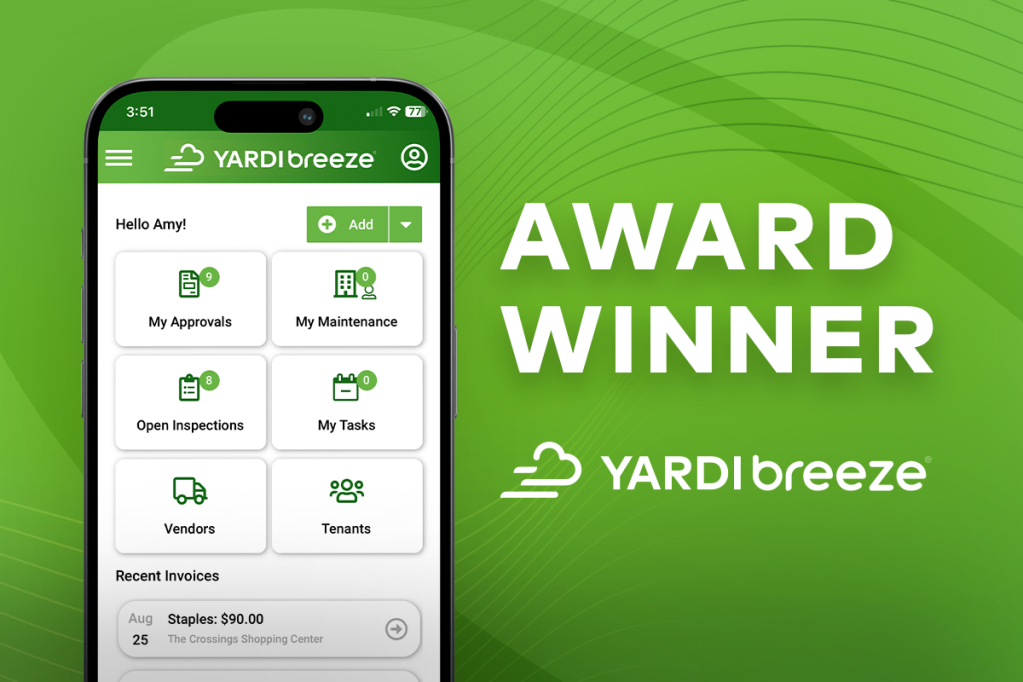
Having no luck with general accounting solutions (e.g., QuickBooks)? Experienced property managers know that real estate accounting software is a necessity, not a luxury. Whether it’s used to track income and expenses by property, manage trust accounts or generate tax reports for real estate assets, general accounting software is rarely up to the task. It doesn’t take much to see why, and the absence of a tenant ledger is usually enough of a dealbreaker.
Many real estate accountants are seeing increased invoice volumes and rising expectations for efficiency. This means they’re looking for more advanced solutions.
So, if you’re not fully satisfied with your accounting platform, you may want to look at a solution powered by AI. This article will explore the issues property managers face and how AI is changing the face of real estate accounting software.
Key takeaways
- General accounting tools like QuickBooks lack real estate-specific features such as tenant ledgers, trust account management and property-level reporting
- High invoice volume, inconsistent formats and multiple entities make manual processing error-prone and inefficient
- AI-powered tools automate invoice capture, approval workflows and data entry, reducing errors and saving time
- Yardi Breeze Premier users can access Smart AP at no extra cost, using OCR and machine learning to process invoices
- Firms can choose between Smart AP for automation or PayScan Full Service for added human oversight
The invoicing dilemma for real estate accountants
Property managers get a ton of financial data thrown at them on a daily basis. But it’s not just the amount of data causing problems. There’s often a lack of consistency in how invoices are sent. Some are paper, some digital, some combined … and some companies will even send one invoice for multiple properties they service, while others will send individual invoices per property.
Then there are the types of invoices that come in. Property management accounting software needs to be able to handle a wide range of invoices, such as those for maintenance, repairs and landscaping. General accounting platforms, and even some that claim to specialize in real estate, have clunky interfaces or lack capabilities.
Even separate utility invoices can be formatted with information in different places. Managing such diverse and high-volume financial activity through manual entry is time-consuming and prone to error. And of course, more properties mean more problems with all of the above.
Common accounting issues without AI
Common human errors like mis-keyed amounts, overlooked due dates and duplicate entries can lead to delayed payments. They can also put a strain on vendor relationships and jeopardize compliance. These challenges are especially significant in real estate accounting due to the number of properties, vendors and invoice types involved.
Does the property need to stay on top of recurring payments or get single large-dollar invoices approved and paid? Or possibly both? Tracking these invoices manually is time-consuming and tedious.
To cap off our — admittedly incomplete — list of issues, we can point to the very nature of the beast. That is, many property management companies operate under different entities or LLCs. This makes it challenging to match invoices to the right entities. Repeated mistakes can be costly, and important relationships with preferred vendors may be on the line.
Why real estate accounting software benefits from AI
AI has an easy way of taking a jumble of invoicing data and processing it in a coherent way. It quickly and accurately automates invoice data entry and approval workflows.
It isn’t hampered by inconsistent formats, methods of receiving invoices, how many properties there are or whether multiple entities need to be considered. AI also addresses inconsistencies across invoices.
Overall, it will trim the time spent on invoice processing and cut out the repetitive, factory-like workflows. There’s always plenty for human accountants to do, and AI won’t replace them. It will only make them more efficient.
Smart AP: Complete AI functionality at no extra cost
At this point, you may be starting to wonder about your options. If you’re on Yardi Breeze Premier, you may already have access to Yardi Smart AP, our integrated, AI-powered accounts payable solution.
Smart AP is designed to enhance real estate accounting, improving accuracy and efficiency within existing budgets.
Smart AP is available to Breeze Premier clients at no additional cost. It automates invoice processing through dedicated email integration, capturing all essential invoice details. Users simply email invoices as PDF attachments.
Importantly, this data capture ensures robust financial records without loss of detail or accuracy compared to manual or full-service approaches.
How Smart AP works
Using Optical Character Recognition (OCR) and machine learning, Smart AP extracts key invoice information with incredible speed and accuracy. This reduces the manual workload for accounting teams, improves data reliability and ensures timely, compliant accounting.
Smart AP setup requirements
Smart AP needs to be set up, but the process is simple. Breeze Premier clients simply need to start a live chat or call in. Our payment processing team will help set you up quickly.
A few requirements have to be met, but chances are most clients have already met most or all of them:
- Ensure properties are active in Breeze Premier
- Update and verify vendor profiles
- Configure invoice approval workflows clearly
- Assign user roles
- Ensure teams understand the invoice approval processes
Smart AP vs. full-service accounts payable
In addition to Smart AP, Breeze Premier clients may choose Yardi PayScan Full Service, our full-service invoicing plan. Let’s look at the differences between them.
Smart AP simplifies electronic invoice management by significantly reducing the manual workload for your team. This practical automation is beneficial for firms comfortable relying primarily on automated workflows.
Alternatively, a full-service approach may be better suited to firms that handle extensive paper invoices. It’s a better choice for teams that prefer an added layer of human oversight. This is more common in larger companies with complex invoice approval processes, compliance concerns or extensive physical invoice volumes. Unlike Smart AP, there are additional costs associated with this feature.
AI-powered real estate accounting software is the future
Real estate accountants are facing increasingly complex accounting demands with fewer resources to manage them. AI integration streamlines accounting workflows, improves accuracy and optimizes precious resources.
As the industry evolves, AI enhancements such as Smart AP will ensure your property management accounting software remains efficient, accurate and equipped for the future.
Frequently asked questions
What is Smart AP?
Smart AP is an AI-powered accounts payable solution available for Yardi Breeze Premier clients at no additional cost. Using a combination of Optical Character Recognition (OCR) and machine learning, it streamlines invoicing by and reduces the number of steps that need to be taken by property management teams.
What is Yardi PayScan Full Service?
Yardi PayScan Full Service lets you give your vendor invoices to Yardi to receive, scan and input data. Your team retains full transparency and ability to track all transactions and audit trails.
Why use AI-enhanced real estate accounting software?
AI integration into real estate accounting workflows provides clear, tangible benefits:
- Reduced manual data entry
- Decreased risk of errors
- Timely invoice approvals and vendor payments
- Enhanced compliance
- Fast, accurate data capture
- Reliable invoice management
- Improved vendor relationships
These enhancements are practical solutions for overwhelmed property management accountants. They allow accounting teams to spend less time and energy on administrative work and more on actually running the business.



